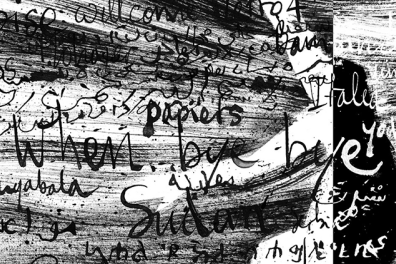ANR Liminal final conference: "Lingua (non) grata. Les langues à l'épreuve des politiques migratoires", September 14-15

Event organized by the laboratories Centre d'études en sciences sociales sur les mondes africains, américains et asiatiques - CESSMA (Inalco-Université de Paris-IRD), Plurality of Languages and Identities: Didactics - Acquisition - Mediations - PLIDAM (Inalco) and Centre d'Etude et de Recherche sur les Littératures et les Oralités du Monde - CERLOM (Inalco).
Entry upon registration, please write to: View e-mail
The symposium will be broadcast live on Inalco's Youtube channel.
Scientific coordination and registrations:
Alexandra Galitzine-Loumpet & Marie-Caroline Saglio Yatzimirsky
View e-mail - View e-mail
Tuesday 14 (9am-7pm) and Wednesday 15 September 2021 (9.30am-7pm) - Auditorium
Inalco - 65, rue des Grands Moulins - 75013 Paris
Final conference of the ANR Liminal: "Lingua (non) grata. Languages put to the test by migration policies"
Argumentary
What do the social spaces of migration do to languages? In what ways do they put migration policies to the test? What happens to subjects and languages on the alert, suspicious as all exiled speech is when faced with the language of sovereignty of the country of arrival? What are the politics of translation, the role of "translators", volunteers or salaried employees involved in the act of translating without having the status or legitimacy to do so? Does the migratory experience invent specific linguistic bricolages - a language of migration made up of acronyms, invented, hijacked or coded words, shibboleths, used by exiles but also, sometimes, by solidarity workers and asylum authorities? And if so, how can we qualify this "migralect", collect and analyze it, restore its subjective charge, its violence - colonial, racialized, policed - and its powers - of derision, resistance, subversion?
These questions have mobilized researchers in the multidisciplinary LIMINAL program (Linguistic and Intercultural Mediations in a context of International Migrations, Agence nationale de la recherche / Inalco) for four intense years. At the Franco-Italian and Franco-British borders, in camps and structures in the Île-de-France region, in sometimes isolated reception centers, in Calais, Paris or Ventimiglia, team members identified these words used orally, observed their usage and developed an analysis methodology with exiled and refugee speakers. This resolutely and necessarily collaborative program apprehended the place of languages for what it is: a political question, that of meaning, between subalternization and management of the undesirable.
Starting with language means tackling the "subterranean life" of exiles, as Erving Goffman put it, that which is unknown to the "dominants" of asylum; taking full measure of its centrality also means questioning its undermining in migration studies; assessing the shortcomings of translation finally means committing to the training of peer mediators, i.e. to a professionalization of translators, as proposed by the University Diploma (DU) Hospitality, Mediations, Migrations (Inalco) for two years now.
To present the results of LIMINAL and reflect on the issues of cosmolingualism constitutive of migration situations, the colloquium will be structured around several workshops, named by some of the 400+ words of the migralecte constituted in: WELCOME, BORDER, VIOLENCE - in English and French, but used or understood in many other languages; TARJUMAN in Farsi, TARJOMAN in Pashto, DALMECHAR in Urdu - the interpreter in the broadest sense; SHOURIYIN, literally the "communist" in Sudanese Arabic, a term for volunteers and activists; AGENT, in English, Urdu and Persian, MUHARRIB in Arabic or SAMSSARI in Tigrinya - the smuggler, as opposed to the more neutral meaning of police officer or security guard in French; MUHAJIR, the exile, the refugee in Arabic but also in Dari and Pashto; YUNAN - Greece, an ancient term said to come from Ionia; YÔDEGÔRI in Farsi "memory of", and finally BOZA, migralect with multiple meanings...
These round tables, with short communications and intervening coordinators, will bring together various players from solidarity and research, documentary and art, right in line with the Briançonnais reflexive workshops (May 14-16, 2021). Between lingua franca and persona non grata, Lingua (non) grata, the title of both the colloquium and the collective work * to be published in late 2021, intends to contribute to "de-provincializing" - in Dipesh Chakrabarty's sense -, xenobureaucracy and thus to thinking through the political conditions of a hospibabélité.
* Lingua (non) grata. Langues, violences et résistances dans les espaces de la migration, ed. by Marie-Caroline Saglio Yatzimirsky and Alexandra Galitzine-Loumpet, Presses de l'Inalco. Forthcoming 2021.
Colloque « Lingua (non) grata. Les langues à l'épreuve des politiques migratoires » - Programme (2.24 MB, .pdf)